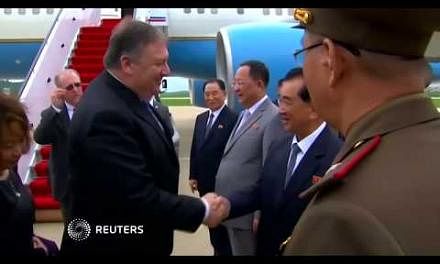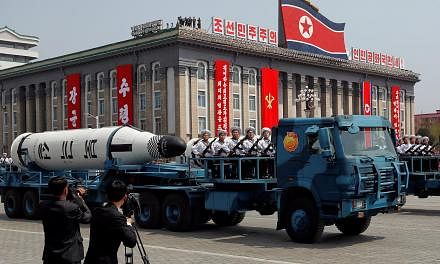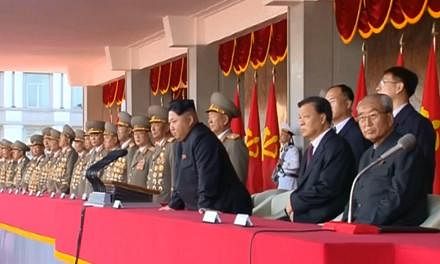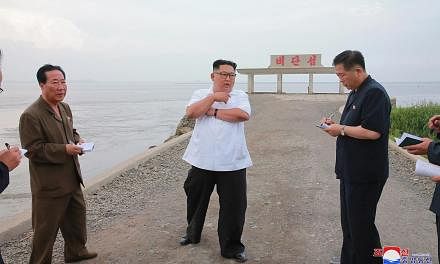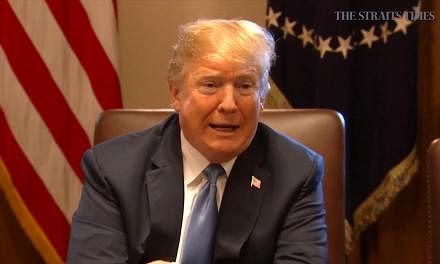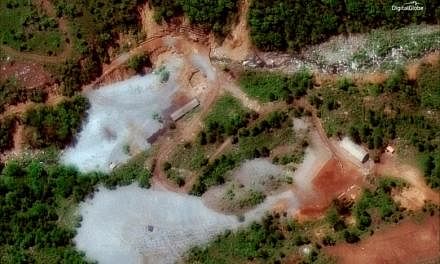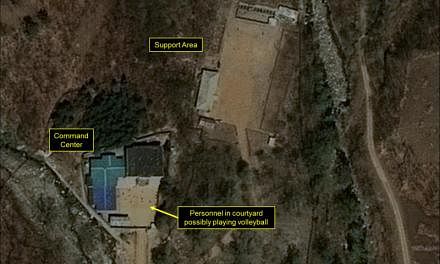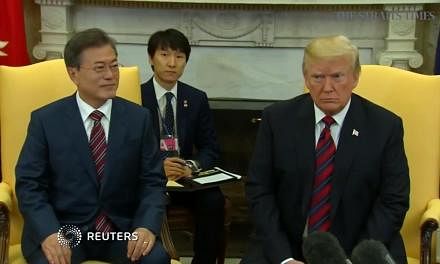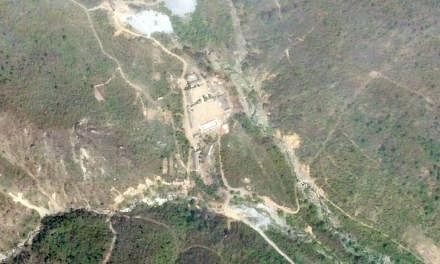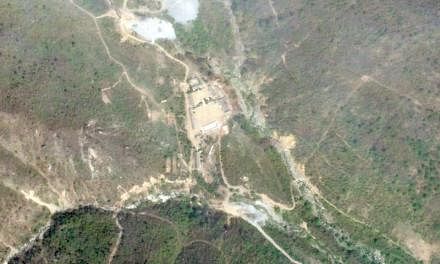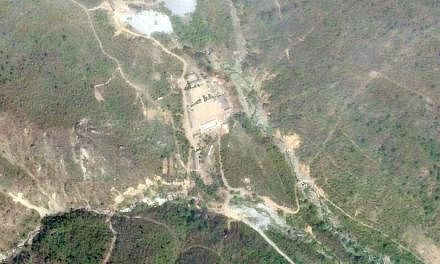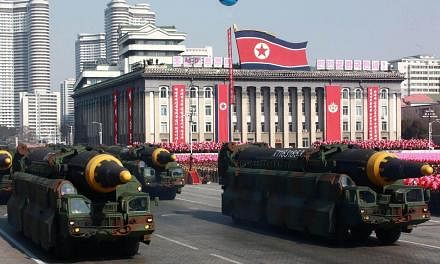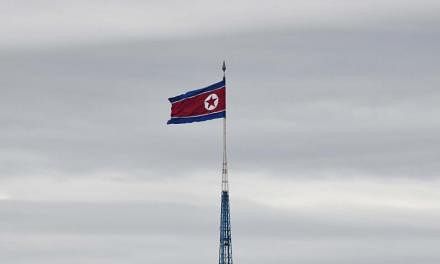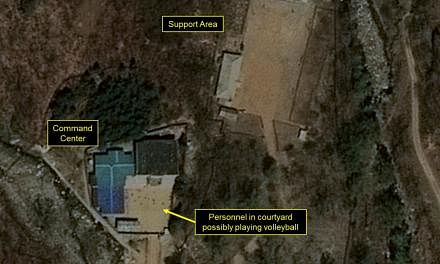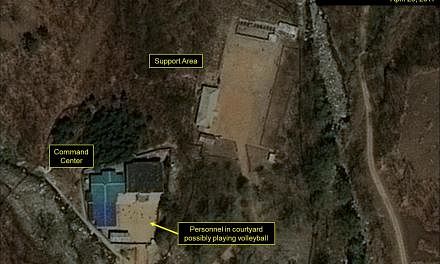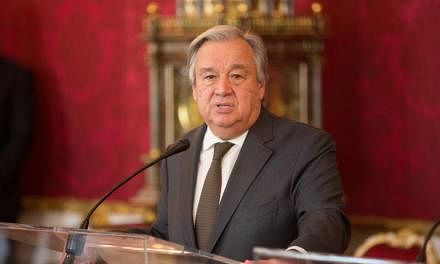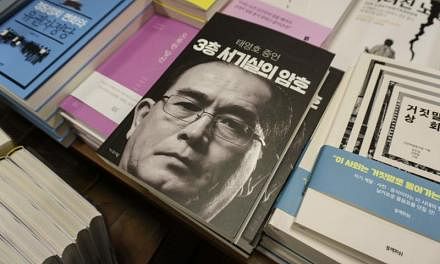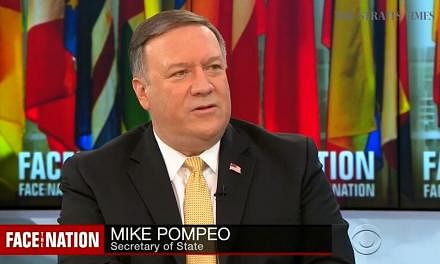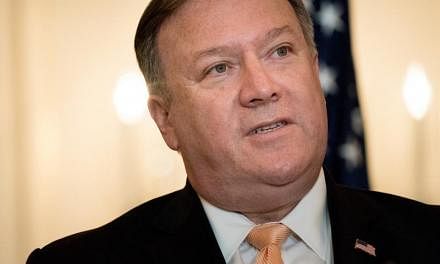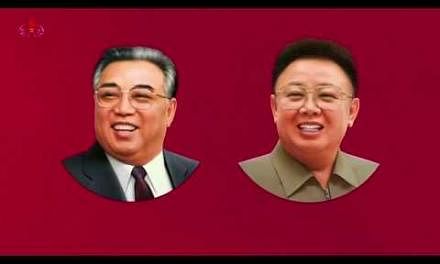WASHINGTON (BLOOMBERG) - The United Nation's latest sanctions on North Korea are more likely to hurt ordinary people in the isolated nation than slow Kim Jong-Un's push to develop missiles capable of hitting the US with nuclear weapons.
"The likeliest impact on the deeper cuts in petroleum products will be on sectors non-essential to the survival of the regime," Paul Musgrave, assistant professor at the University of Massachusetts at Amherst, said by e-mail. "That means that the incidence of these cuts will fall hardest on ordinary North Koreans."
US President Donald Trump's administration has spent much of 2017 urging other nations to ratchet up the pressure on Pyongyang, with much of that work focused on China, its biggest trading partner. Previous rounds of sanctions have failed to stop Kim from advancing his nuclear program and analysts said the latest resolution is unlikely to bring a solution any closer.
North Korea on Sunday (Dec 24) described the move as an "act of war" and vowed to take revenge on the US and other security council members. China's imports from the country in dollar terms are down almost 27 per cent during the first 11 months of the year, while exports have gained 12 per cent, customs figures showed Saturday.
While the regime in Pyongyang is likely to keep fuel supplies for its own use, the general population continues to struggle in an economy only a fraction the size of South Korea. The sanctions may create further resentment in the country against the Trump administration, according to Hong Kang-chel, a former North Korean border guard who defected in 2013.
"Cutting oil supplies will only make North Koreans rage against the US because they now have to work more by hand on farms, while officials will keep driving cars using smuggled petroleum," Hong said. "North Korean workers sent overseas have brought back home the ideas and cultures of capitalism they witnessed, but now Trump is leading the way for blocking that route."
The new resolution caps deliveries of petroleum products to the equivalent of 500,000 barrels per year starting Jan 1. In September, the council demanded imports be cut to the equivalent of 2 million barrels from 4.5 million. It also limited crude imports at current levels of about 4 million barrels annually, which the US has said China provides via the Dandong-Sinuiju pipeline.
The UN resolution said North Korea is selling coal and other prohibited items "through deceptive maritime practices" and is getting fuel via ship-to-ship transfers, which are used in the petroleum industry to move liquids from one tanker to another at sea, avoiding on-shore infrastructure.
North Korea has been using these methods more frequently, using boats from nations including China, according to Japan's Yomiuri newspaper, citing US, Japanese and South Korean officials it did not name. The US Treasury Department last month identified North Korea's Korea Kumbyol Trading as a firm that has attempted ship-to-ship transfers, possibly of oil.
North Korean boats have received contraband oil from what appear to be Chinese ships in international waters on about 30 occasions since October, South Korea's Chosun Ilbo newspaper reported Tuesday, citing unidentified South Korean government and US military sources.
To help stop the practice, the UN measure says that countries can seize, inspect, or impound any vessel in their ports if there are grounds to believe the ship is being used to transport banned items.
Zhao Tong, a fellow at the Carnegie-Tsinghua Center for Global Policy in Beijing, said the sanctions only grant authority for member states to seize ships in its own territorial waters - making it impossible for the US to inspect suspicious vessels within Russian or Chinese areas.
And even if ship-to-ship transfers can be monitored by satellite or other means of surveillance, stopping them would be difficult, according to Musgrave and Peter Hayes, executive director of the Nautilus Institute for Security and Sustainability.
"Monitoring is probably easy, given US remote-sensing capabilities," Musgrave said. "But enforcement seems hard."
The full impact of lower petroleum product supplies likely won't be felt during winter as the country's agricultural sector, which consumes "a surprising amount of fuels", is less active, Bill Brown, an adjunct professor at Georgetown University's School of Foreign Service, said by e-mail.
"By next spring I suspect there will be calls for lifting the sanctions to help prevent a fall in food supply," Brown said.

